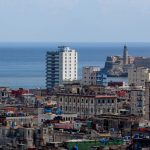
One of the flagship projects of the government of Gustavo Petro is the health reformwhich this week has been seen to falter, so much so that it demonstrated the breakdown of the coalition that led Petro to the Narino Palace.
To that extent, a possible fall of the initiative, due to the lack of votes to be approved in Congress, would have “a positive economic impact, because one of the main risks for the Colombian economy is the contrary to fiscal stability and contrary to the participation of private initiative”, as stated Jorge Restrepo, professor of economics at the Javeriana University.
(Green Party would drop health reform and enlist alternative).
In fact, the Executive’s project proposes to nationalize the health system, a measure with which parties and health unions do not agree, because “it puts the finances of the system at risk.”
To which is added that this is one of the reforms “classified as radical by the ideological components”, assures the academic.
(‘The figures are not what patients see daily’: Ministry of Health).
And, that a reform of this type is left without enough votes, it shows that there is what for Restrepo is “a block that is defending the institutions of a liberal democracy existing in Colombia”.
(Why Fedesarrollo does not see it necessary to make a health reform).
For Mauricio Jaramillo Jassir, professor at the Universidad del Rosario“surely Corcho will receive the mandate to rethink the health reform, especially in the repair of the parties: which is to maintain the functions of the EPS”.
(Conservative Party and the U get off the health reform project).
Despite the fact that there is no clear failure of the articles, because the government is expected to try to negotiate directly with congressmen to get support, Restrepo considers that “These messages must be read by the government in matters of labor and pensions, in order to make progress in reforms that reduce the economic risk attributed to the government of Gustavo Petro”.
BRIEFCASE















